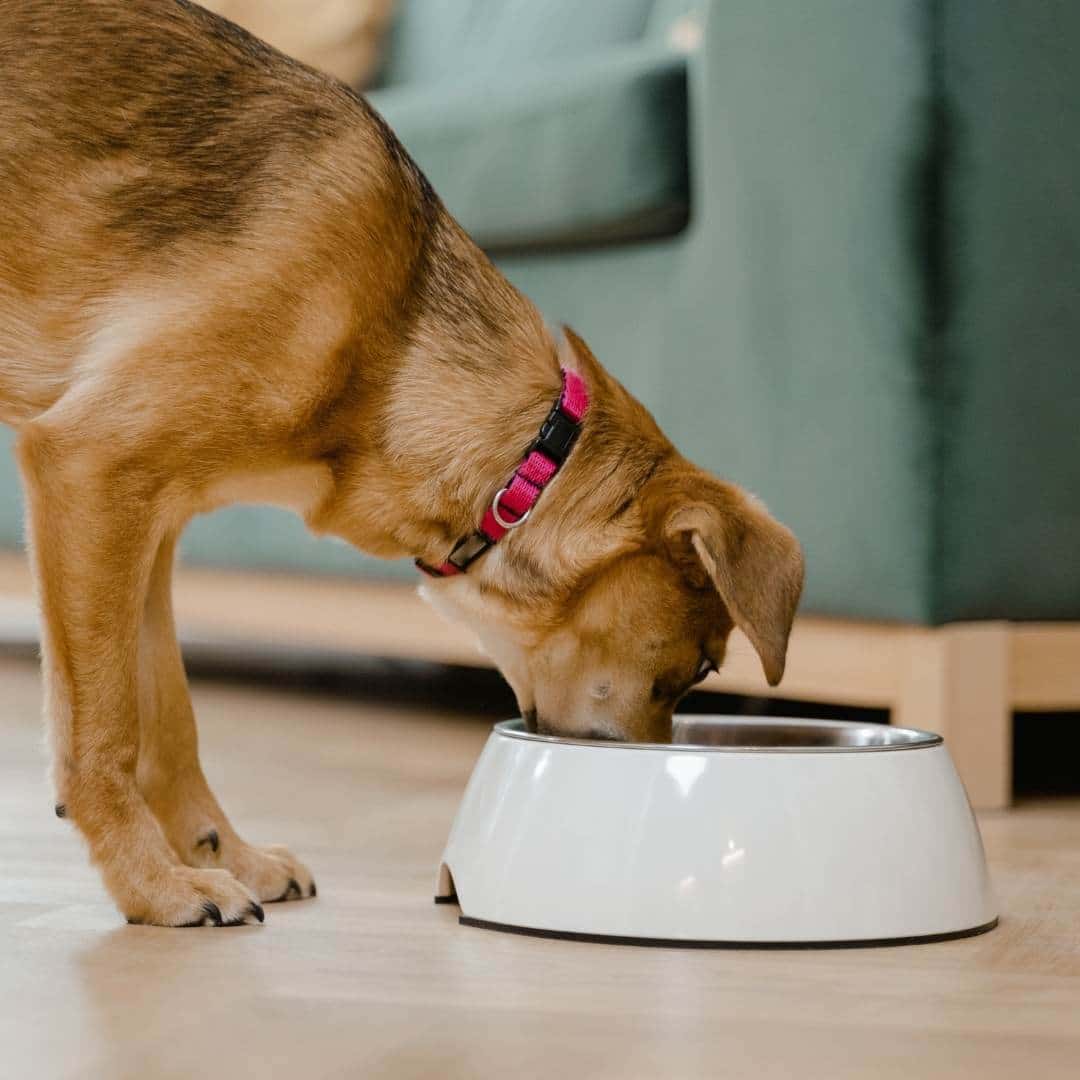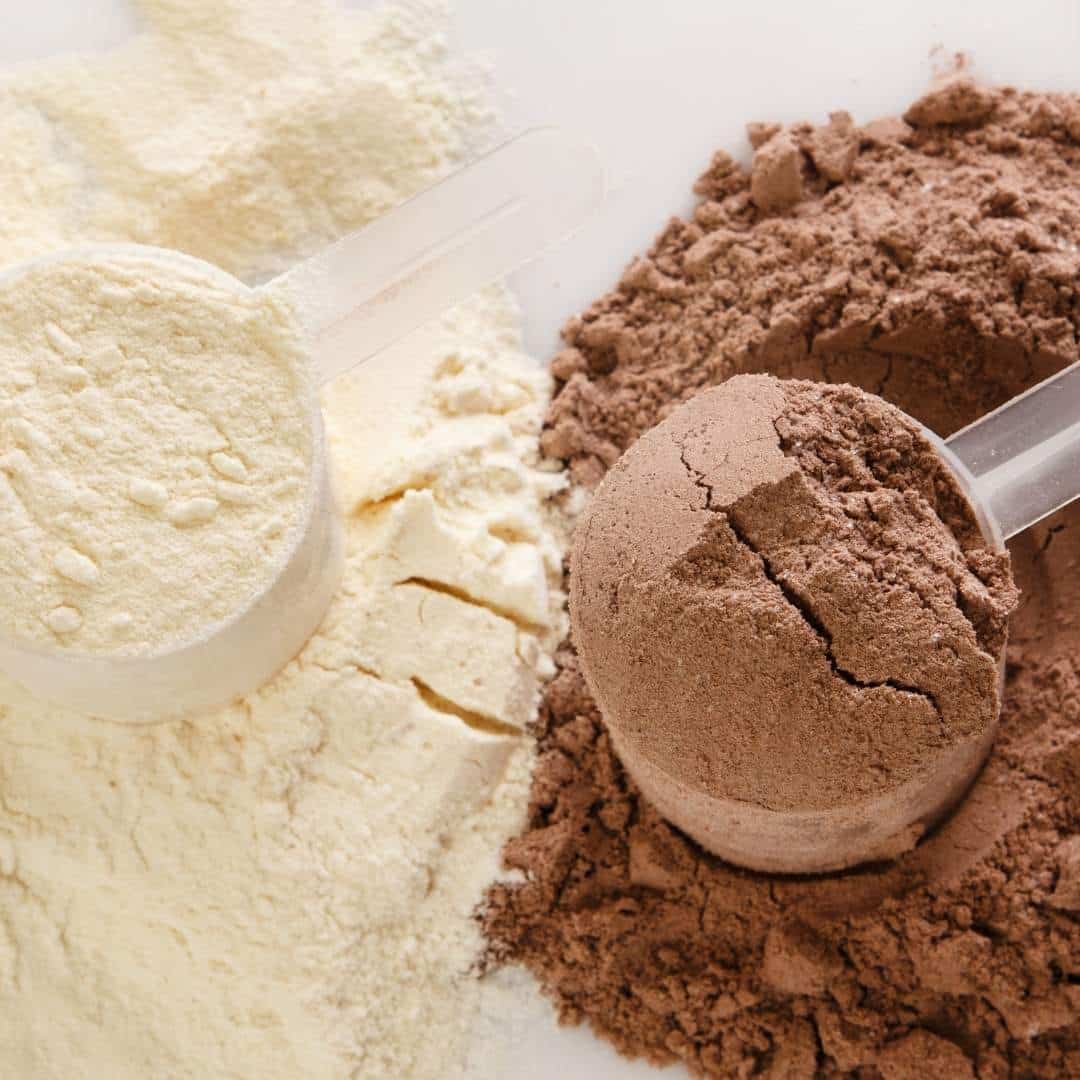Proteins are essential for both humans and animals. They are a structural component of your dog’s body organs and tissues. All dogs can ingest it through food such as meat, vegetables, and grains. Besides, some canines may need an additional intake of protein.So, can dogs eat whey protein?
The answer is yes. However, there are many factors to which you should pay attention.
What is Protein and Why is It Important?

Proteins are crucial for good health. Every cell in the body contains protein, which basic structure is a chain of amino acids.
The body uses those amino acids to build muscle, repair cells, make hormones and enzymes, support the immune system, maintain healthy blood pressure, as well as supporting bone health.
The body needs 22 amino acids, 12 of which your dog can produce (nonessential amino acids). You should add the other 10, which are essential amino acids, through food.
In addition to that, if a dog does not get enough protein, his coat may become dry and spotty. As a result, you could see that he loses weight quickly or that his wounds heal slowly.
Can Dogs Eat Whey Protein?
Yes, they can. Here are some benefits of whey protein in your dog’s nutrition.
Whey is a dairy protein that is separated from the casein in milk, or it is formed as a by-product of the cheese-making process.
It is a complete protein containing all nine essential amino acids, is low in lactose content, and is highly digestible.
This type of protein can help to:
- Build muscle
- Boost the immune system
- Increase metabolism
- Weight loss (for overweight dogs)
- Facilitate faster wound healing
- Lowering cholesterol
- Increase energy levels
Many studies show that ingredients of a whey protein offer huge benefits that aid in the prevention of various life-threatening conditions such as:
- Cancers
- Chronic Lung Conditions
- Diabetes
- Digestive Issues
Whey Protein Isolate Vs. Concentrate
There are different types of whey protein, but the most common are whey isolate and whey concentrate. The first difference between those proteins is processing techniques during production, which causes their nutritional differences.
When a sufficient amount of protein is achieved, the liquid dries in order to form whey concentrate powder, which has up to 80% protein by weight, and the other 20% contains carbohydrates and fats.
On the other hand, whey isolate has no fat, less than 1% lactose, and is lower in carbs than whey concentrate. So, you do not have to worry about a lactose intolerant reaction or anything else because this protein form is perfectly safe for your canine friend.
How Much Protein Does A Dog Need?

When it comes to the required amount of protein, we need to pay attention to the dog’s life stage, activity level, reproductive cycle, underlying medical condition, and overall body condition. For example, puppies need more protein as they grow up, but that need will steadily decrease thereafter.
The recommended protein range for healthy puppy growth is 22-32% on a dry matter basis. However, healthy adult dogs need 15- 23% of dry matter protein on a daily basis.
The easiest way to calculate the amount of protein for your dog is simply by weight. Your canine friend needs approximately 1 gram of protein per pound of ideal body weight. For example, a 30-pound dog needs 30 grams of protein per day.
Nevertheless, you should be aware that more active dogs need more protein to provide the necessary components for energy production. Also, when dogs reach their senior years, mostly around the age of 7 or 8, they tend to become slower and less active.
Their body fat increases and their metabolism slows down, so protein requirements actually increase by about 50%. More protein is also essential for those animals suffering an illness, such as those malnourished or pregnant.
Can We Give Human Protein Powder To Dogs?

Suppose your dog ingests this kind of protein powder; in that case, he may experience diarrhea and other gastrointestinal problems such as vomiting and loss of appetite. He may also be tense or slow because he feels discomfort.
Most human protein powders are made for human needs, tastes and bodies. They may contain additives such as cocoa powder or artificial sweeteners, like xylitol, which can be harmful to dogs’ health.
Cocoa Powder
This ingredient is toxic to your dog! It contains theobromine and caffeine, which speed up your dog’s heart rate. It can cause :
- Heart attack
- Seizures
- Diarrhea
- Increased urination
- Vomiting
Xylitol
Chemically, xylitol is a natural sugar alcohol, a carbohydrate that does not actually contain alcohol. It’s a sweetener, which can be under other names, such as wood sugar or birch sugar, and is found in:
- Sugar-free products
- Medications
- Beauty products
- Dental care products
It is safe for humans but can cause life-threatening toxicoses in dogs. What makes this different is how blood sugar is controlled in the body.
In dogs’ bodies, xylitol causes a large release of insulin from the pancreas because it absorbs really fast into the bloodstream. It means that the blood sugar level quickly drops, which is better known as hypoglycemia. Clinical signs of hypoglycemia, which can be developed within 30 minutes of ingestion, are:
- Vomiting
- Weakness
- Depression
- Hypokalemia
- Seizures
- Coma
When it comes to xylitol poisoning, it starts within 20 minutes and can KILL your dog! Here are the signs that you should remember:
- Shaking or seizures
- Vomiting
- Bleeding problems
- Liver failure
- Difficulty walking or standing
- Weakness and collapse
- Coma
If you find out that your dog ate xylitol, contact your veterinarian immediately because even a small amount of this sweetener can lead to disastrous consequences.
Is Protein Powder Safe For Dogs?

This powder comes from plants or milk. It is used as a supplement and can not be a substitute for regular nutrition. Highly active or working dogs will need more protein supplements since they spend more energy throughout the day.
If protein powder is unflavored and pure, it is safe for your dog. However, you should pay attention to the recommended daily amounts, depending on the size and age of the dog. Besides, consulting your vet will be a good decision too.
Also, protein powder for dogs contains calories and will surely affect your dog’s weight, so you need to be especially careful to keep your dog healthy and happy. Furthermore, this kind of dog protein is highly digestible and has less than 1% of lactose.
When it comes to potential risks of using protein powder for dogs, you should know that too much protein powder can put pressure on a dog’s kidneys, and then protein is excreted in the dog’s urine. Furthermore, not all supplements have equal good quality. Some could have fillers that are not highly digestible and can cause problems.
Related: Can Dogs Eat Crackers
Bottom Line
In a nutshell, besides high-quality, balanced food rich in protein, your dog can eat whey protein, since he needs additional protein which his body can not produce. His age, size, and activity level determine the required amount of protein.
Therefore, as a responsible pet owner, you should not give him human protein powder, because they can have ingredients which are causing many problems.
When you have to decide which protein to feed your dog, choose the ones with high-quality protein sources. Also, it is always a good choice to consult your vet about introducing any kind of protein to your dog’s diet.
Read Next: Can Dogs Eat Quail Eggs
